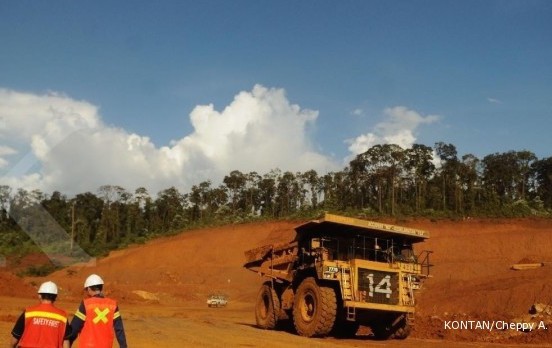Nickel prices in free fall following issuance of additional export permit
Change Size
 Workers monitor a Sulawesi site mined by nickel producer PT Vale Indonesia. (KONTAN/Cheppy A Muchlis)
Workers monitor a Sulawesi site mined by nickel producer PT Vale Indonesia. (KONTAN/Cheppy A Muchlis)
G
lobal nickel prices have been in free fall over the past few days following the issuance of another export permit by the Indonesian government for local company PT Ceria Nugraha Indotama (CNI).
On Tuesday, the government granted CNI permission to export 2.3 million tons of nickel ore in view of the expected capacity of the company’s future smelter to be developed in Kolaka, Southeast Sulawesi.
As a result, the price of benchmark nickel for three-month delivery on the London Metal Exchange (LME) fell by nearly 3 percent to US$9,130 per ton on Thursday, compared to $9,410 on Monday.
(Read also: Antam starts exporting nickel after relaxation policy)
In late March, state-owned diversified miner PT Aneka Tambang (Antam) also obtained a permit to export 2.7 million tons of nickel ore, in accordance with the total capacity of its three ferronickel plants in Pomalaa, also in Southeast Sulawesi.
The company has submitted a second proposal to the government to export another 3.7 million tons of nickel ore, in line with the feeding capacity of its new ferronickel smelter in East Halmahera, North Maluku.
Earlier this year, the government decided to relax the mineral export ban for low-grade nickel ore with less than 1.7 percent nickel content, washed bauxite and copper concentrate, in exchange for a mining company's commitment to develop a new smelter.
Fitch Group’s BMI Research has forecast that Indonesia’s nickel production will grow by 20 percent year on year in 2017, the highest yearly production growth rate since the imposition of the ban in 2013, and by an average of 8.6 percent during the 2017-2021 period. (bbn)









